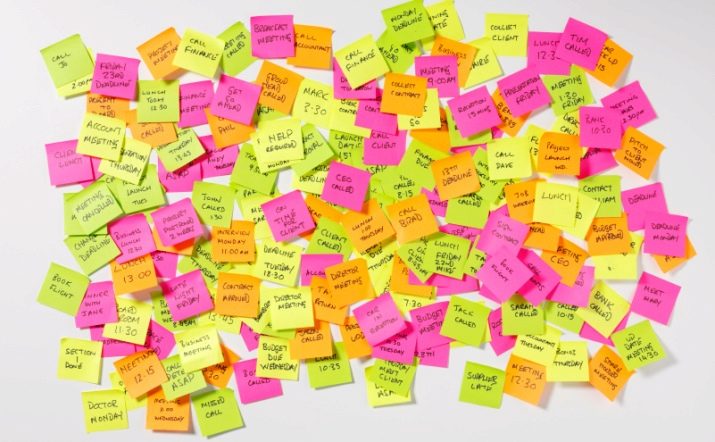How to quickly memorize and retell a text?

Not only at school there is a need to remember and learn a text, any information. School cramming does not allow you to penetrate, grasp the material. If a senseless repetition of the text is enough for a teacher, then in adulthood we definitely need understanding, especially if a retelling of what has been read is required. Not everyone is naturally gifted with a sharp memory and the ability to grasp on the fly, but you can learn to memorize.
Ways to memorize text
The brain needs constant training. If this does not happen, he will shut down and assimilate information rather badly. To quickly memorize text, you can use different techniques. Experts recommend this way to train memory:
remember various unpleasant situations and take notes of memories in writing;
change the environment when you memorize different things, for example, move from room to room;
pronounce loudly and clearly all phrases aloud, use gestures, emotions;
make an audio version of the text and listen to it before going to bed;
walking while memorizing perfectly stimulates memory;
memorizing words, use the 60 seconds method - allocating 1 second for each word;
learn foreign languages - it effectively trains the brain and memory.
It's very important to give up cramming - this method has nothing to do with memorization. Cramming involves mindlessly memorizing phrases and words in the desired sequence, it takes a lot of time, and the meaning is lost.

It is most effective to assimilate and retell the material, there is no one hundred percent accuracy, but the meaning is remembered as correctly as possible. But this method not suitable for memorizing formulas and other precise concepts.
The main way to memorize effectively consists of several parts:
reading the text several times;
understanding the essence, identifying the main thing;
planning.
It is useful to break the text into parts and memorize "in portions" - this is called structuring. It is recommended to focus as much as possible in the middle, since the beginning and end, as a rule, contain a lot of general information.

Use ways to quickly memorize:
printing the excerpts and posting them in the most visited areas of the housing;
closed public on social networks and publication of parts of the text by timer;
even reading in passing stores meaningful information in memory;
translating words into a visual image is an excellent way of memorizing;
assignment of awards for each learned passage - social network entrance, tea and cookies, rest, short walk;
the text read in the morning is best remembered - regardless of the peculiarities of biorhythms, ideally, after waking up and washing, repeat what you learned the day before.
An excellent memorization method is retelling the text. This technique acquires particular importance if it is necessary not only to learn, but also to retell the text.

How to prepare for retelling?
A retelling, or a free presentation, of what has been read may be required in different formats: close to the text, as much as possible. But if you have a bad memory, then either option will be difficult. Thinking is not an easy process, it is necessary to learn to retell in childhood. If you want to teach or learn this, you need to do it regularly. To improve your abilities in this area, you need to periodically retell something to another person.
Experts recommend following some rules when preparing for retelling:
when speaking or reading, do not use a whisper - this is done either silently or clearly aloud;
if the article or text is of a complex scientific, technical nature, take notes: abstracts, key words;
give up preparing for retelling in the evening and even more so at night - the brain works best in the morning.

If you've noticed that retelling a movie or book rarely causes problems for people, this is largely because the story is most often the subject of discussion immediately after viewing or reading. Therefore, the text that is important for you to retell with high quality should be discussed.... You need to prepare for the retelling in a quiet place, calm, where nothing distracts, with high-quality lighting.
If you need to prepare a child for retelling, consider the following features:
for home studies, choose books with a simple plot and a predictable ending;
tell your child about the content of the training object in advance;
read the plots many times, but change the intonation, voice;
ask questions throughout the reading;
the student reads the book on his own, but it is better if he does it aloud, control the pace - it should be measured;
always explain what is not clear;
make a plan and a list of questions, periodically discuss the text on this basis.
The development of the skill of retelling will help the child learn easily, think more figuratively, this develops speech, trains memory and thinking.

Practical advice
It is desirable to learn to retell what you have read before school age. But not all adults can easily retell the text. So that this process does not cause difficulties, it is necessary to constantly improve practically. To do this, divide the work into stages.
Stage of vocabulary work. In a scientific or technical text, not always all words are familiar and understandable. They must be written out and the meaning must be found out. In a work of fiction, this can be done in the second step process.
The stage of acquaintance with the text. The parts of the semantic order are determined, highlighted by a certain thought in a scientific text.In any case, it is necessary to answer the question "what is being said here" throughout the reading. By the end, a plan should be drawn up from the key points. The abstract can be fixed on paper.
Generalization stage. Here the work is evaluated, conclusions are drawn, the results are summed up, ideas are singled out. The main thing is to determine the impression made by the text. After this stage, it is better to take a break, distract yourself and do other things.
The final stage... Repeated reading is necessary to refresh the memory of the moments that remained beyond the first reading. After that, you need to retell the text, if possible without looking at the original source, using the synopsis.

So that the beginning of the retelling does not cause difficulties, use associations - remember the environment in which the memorization took place, the text itself, the book. In the work of an artistic plan, one can recall with whom the heroes were associated. Thinking in this way, peep into the book. There are several tricks that can help you memorize and retell better:
visualize the picture in detail, with sounds, aromas, shoot a movie in your head;
you do not need to speak aloud at the first reading, otherwise a complete picture in your head will not work;
retelling is easier if there is a person who is ready to listen to you;
read as many books as possible - this expands vocabulary and trains memory;
re-read the most difficult moments several times;
do not use electronic media, proofreading of printed text is more productive.









